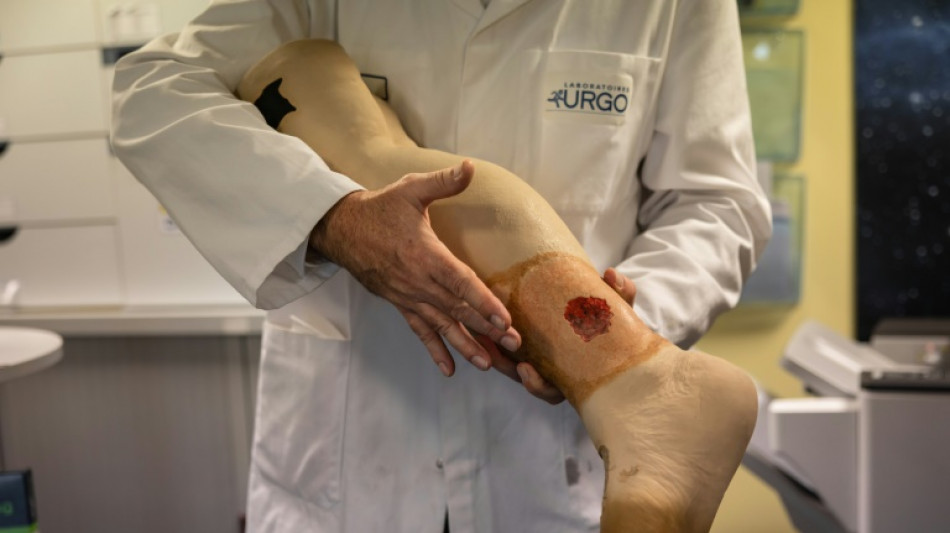
-
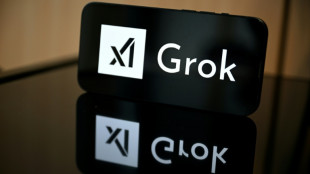 California investigating Grok AI over lewd fake images
California investigating Grok AI over lewd fake images
-
Wales's Faletau set to miss bulk of Six Nations
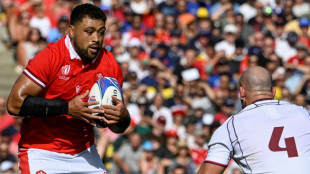
-
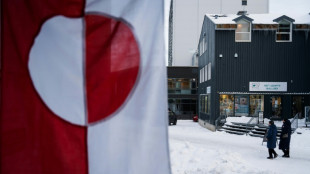 Denmark, Greenland wrap up crunch White House talks
Denmark, Greenland wrap up crunch White House talks
-
England sweating on Fin Smith's fitness for Six Nations opener

-
 NASA acknowledges record heat but avoids referencing climate change
NASA acknowledges record heat but avoids referencing climate change
-
England rugby league coach Wane quits role

-
 Oil prices extend gains on Iran worries
Oil prices extend gains on Iran worries
-
European basketball pioneer Schrempf lauds 'global' NBA

-
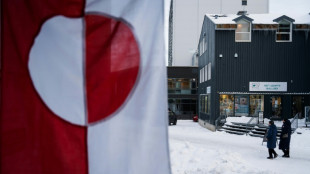 Denmark, Greenland in crunch White House talks as Trump ups pressure
Denmark, Greenland in crunch White House talks as Trump ups pressure
-
Mitchell hits ton as New Zealand down India to level ODI series
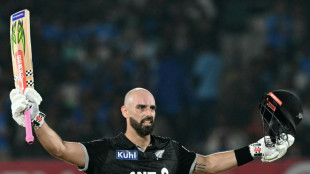
-
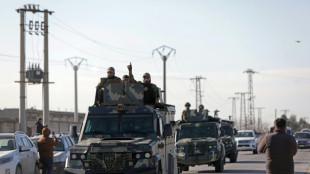 Syrian army tells civilians to stay away from Kurdish positions east of Aleppo
Syrian army tells civilians to stay away from Kurdish positions east of Aleppo
-
Spurs sign England midfielder Gallagher from Atletico Madrid

-
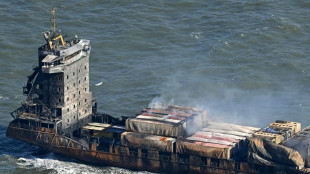 Russian captain tried to avoid North Sea crash: court
Russian captain tried to avoid North Sea crash: court
-
Battle over Chinese-owned chipmaker Nexperia rages in Dutch court
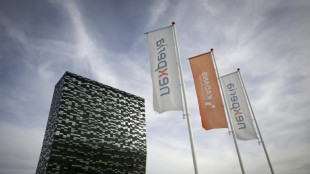
-
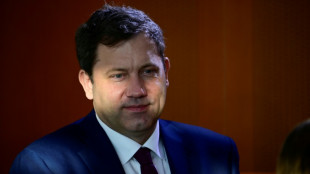 Transatlantic ties 'disintegrating': German vice chancellor
Transatlantic ties 'disintegrating': German vice chancellor
-
Five problems facing Ukraine's new defence chief

-
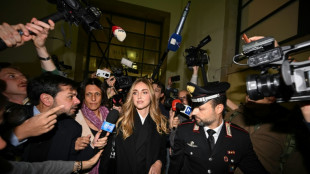 Italian influencer Ferragni acquitted in Christmas cake fraud trial
Italian influencer Ferragni acquitted in Christmas cake fraud trial
-
UK interior minister says 'lost confidence' in police chief over Maccabi fan ban

-
 Ryanair hits out at 'stupid' Belgium over aviation taxes
Ryanair hits out at 'stupid' Belgium over aviation taxes
-
Burkina Faso sack coach Traore after AFCON exit
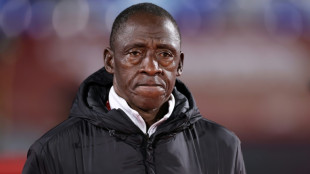
-
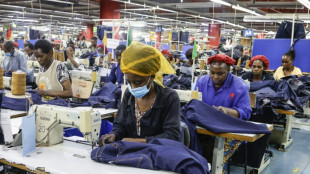 African manufacturers welcome US trade deal, call to finalise it
African manufacturers welcome US trade deal, call to finalise it
-
What happens when fire ignites in space? 'A ball of flame'
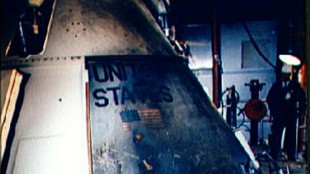
-
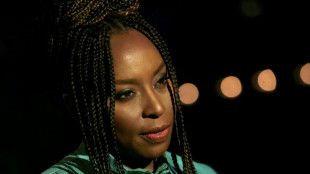 Death of author's baby son puts Nigerian healthcare in spotlight
Death of author's baby son puts Nigerian healthcare in spotlight
-
France bans 10 British anti-migrant activists
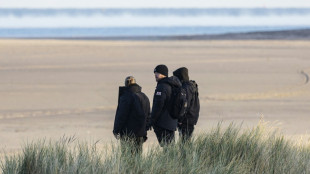
-
 2025 was third hottest year on record: climate monitors
2025 was third hottest year on record: climate monitors
-
Hydrogen planes 'more for the 22nd century': France's Safran

-
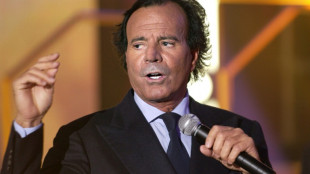 Julio Iglesias, the Spanish crooner who won global audience
Julio Iglesias, the Spanish crooner who won global audience
-
'We can't make ends meet': civil servants protest in Ankara
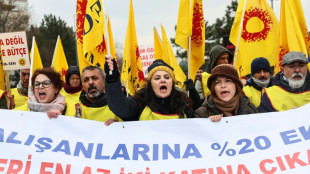
-
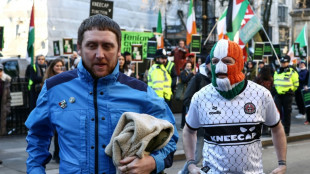 UK prosecutors appeal Kneecap rapper terror charge dismissal
UK prosecutors appeal Kneecap rapper terror charge dismissal
-
UK police chief blames AI for error in evidence over Maccabi fan ban

-
 Oil prices extend gains on Iran unrest
Oil prices extend gains on Iran unrest
-
France bans 10 UK far-right activists over anti-migrant actions
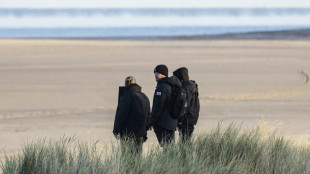
-
 Every cent you take: Sting, ex-Police band mates in royalty battle
Every cent you take: Sting, ex-Police band mates in royalty battle
-
Thailand crane collapses onto train, killing 32

-
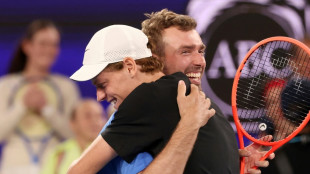 Amateur stuns star-studded field to win 'One Point Slam' in Melbourne
Amateur stuns star-studded field to win 'One Point Slam' in Melbourne
-
Italian influencer Ferragni awaits verdict in Christmas cake fraud trial
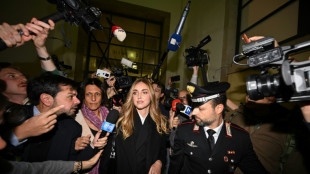
-
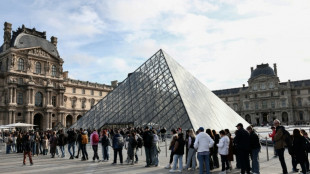 Louvre and other French museums fare hikes for non-European visitors
Louvre and other French museums fare hikes for non-European visitors
-
Japan's Takaichi to dissolve parliament for snap election

-
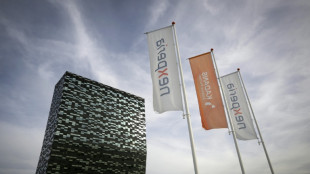 Dutch court hears battle over Nexperia
Dutch court hears battle over Nexperia
-
World-first ice archive to guard secrets of melting glaciers
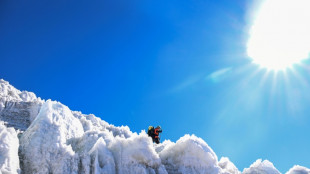
-
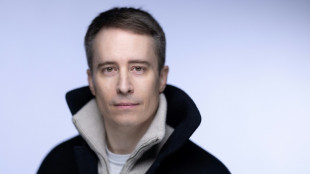 Ted Huffman, the New Yorker aiming to update top French opera festival
Ted Huffman, the New Yorker aiming to update top French opera festival
-
Ofner celebrates early then loses in Australian Open qualifying
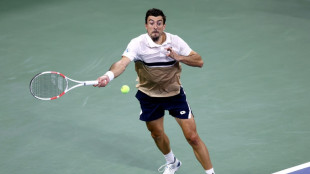
-
 Singer Julio Iglesias accused of 'human trafficking' by former staff
Singer Julio Iglesias accused of 'human trafficking' by former staff
-
Luxury retailer Saks Global files for bankruptcy
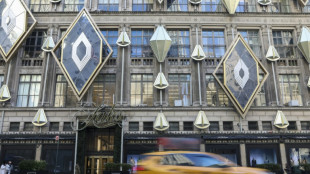
-
 Asian markets mostly up with politics bump for Tokyo
Asian markets mostly up with politics bump for Tokyo
-
Iran vows fast trials over protests after Trump threat

-
 China's trade surplus hit record $1.2 trillion in 2025
China's trade surplus hit record $1.2 trillion in 2025
-
Trail goes cold in UK abandoned babies mystery
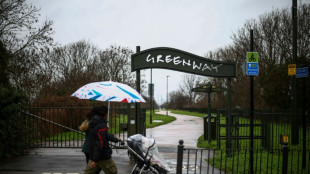
-
 Japan's Takaichi set to call February snap election: media
Japan's Takaichi set to call February snap election: media
-
Scientist wins 'Environment Nobel' for shedding light on hidden fungal networks
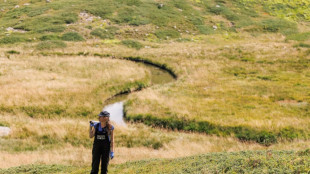

Dressing 'revolution' seeks artificial skin for burn victims
Far from the humble sticking plaster, medical firms and researchers are seeking to create the "ultimate dressing" -- artificial skin they hope will revolutionise the treatment of severe burns.
For the last 18 months, researchers from the French firm Urgo have been working towards achieving this Holy Grail of wound treatment, which would save serious burn victims from the painful and repeated skin grafts they currently endure.
The 100-million-euro ($106,000-million) "Genesis" project hopes to have a product ready by 2030.
Guirec Le Lous, the president of Urgo's medical arm, told AFP that it is a "crazy" project.
"Are we capable of designing artificial skin in a laboratory? No one in the world has succeeded," he said.
Inside Urgo's laboratory in Chenove, near the eastern French city of Dijon, living cells are being chilled before they can be cultivated.
"You have to be able to recreate all the functions of skin," including protecting against external threats and regulating the temperature, Le Lous said.
It must also be relatively easy to make, because artificial skin must be "available for all and at the right price," he said, without revealing the exact technology or type of cells Urgo is using.
Urgo, a family-owned business since 1880, has long made dressings for chronic wounds such as diabetic foot ulcers and venous leg ulcers.
"Since the 2000s, we have worked on materials that will correct healing problems: dressings have become intelligent, interactive with wounds, allowing them to perform better," Urgo's research director Laurent Apert said.
He called the change "a revolution".
- Silver bullet -
Urgo is far from alone in pushing the boundaries of what dressings can do.
Researchers at the University of South Australia have developed a new kind of dressing that knows when to release nanoparticles of silver, which can break down antibiotic-resistant bacteria.
"Our treatment is unique in that it capitalises on the anti-bacterial properties of silver, but avoids over-exposure, by only activating when infection in present," lead researcher Zlatko Kopecki said in a statement.
This makes the dressing "a much safer and effective treatment for children," he added.
Children suffer almost half of burn injuries worldwide, most of them aged between one to five years old, according to research using the World Health Organization's Global Burn Registry.
- 'Night and day' -
Another new technique does away with the idea of dressing altogether.
For a product from French startup VistaCare Medical, patients put their affected leg into a large device which never touches their wound.
Instead the chamber controls the humidity, temperature and other aspects important to healing.
"There is no more dressing. The idea is to put the wound in an enclosure, in a sterile air, VistaCare Medical president Francois Dufay said.
"With this system, we provide the wound with what it needs, at the right time."
VistaCare Medical's device is currently used in around 20 French hospitals, but next year the firm plans to apply for approval in the United States for a product to be used in the home.
The new developments have shaken up the world of wound healing, long a neglected area of medical research.
Isabelle Fromantin, who heads the wounds and healing research unit at the Curie Institute in Paris, said that "compared to 20 years ago, it's night and day in terms of wound care".
Along with her team, Fromantin has developed dressings that reduce the odours from necrotic wounds seen in some cancers.
However she said that not everything can be achieved by new technologies -- healing is a process that varies from person to person, depending on their age and health.
"Believing that a dressing will heal you all by itself is utopian," she said.
I.Yassin--SF-PST


